A scene from the Leben der heiligen Altväter (1482)
Blurbology
I take book endorsement pretty seriously: not in the sense that I have to agree completely with everything in a book before I’ll recommend it, but in the sense that I want my endorsement to be memorable, specific, and apt. I work pretty hard at writing an endorsement, and while writing the blurb goes quick (some are less than fifty words!), reading the book (at least once) in order to endorse it takes nearly as long as the reading I would do in preparation for writing a full review. I wish I had written more actual book reviews over the years, but blurbing has been, for me, a related discipline. Some years ago I decided to blurb a lot (when asked), and to hold myself to high standards.
There’s a lot to say about the theory and practice of endorsing a book, and there are many temptations to cut corners on the craft of it. While it’s tempting to reduce endorsement to its merely commercial goals, I consistently think of it instead under the heading of publication in the sense of making theological work public: helping it find its audience, clueing in readers to what is in the book and why I think it matters.
I have tried to keep myself honest about the whole process of blurbing simply by keeping a list of every book I’ve ever endorsed. I post them all here to add another layer of personal accountability.
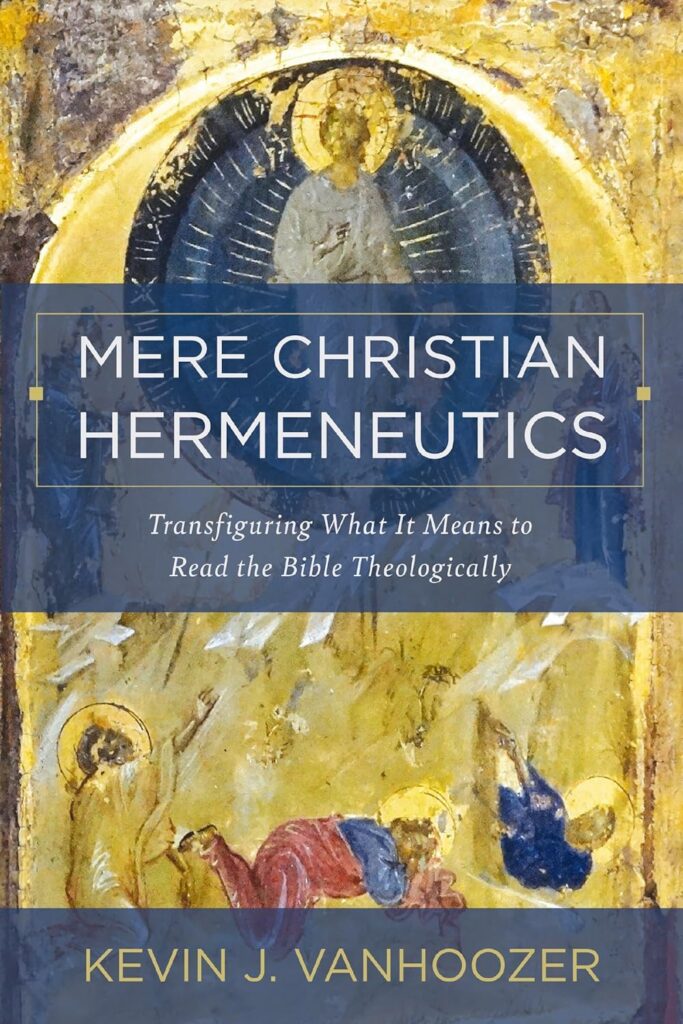
Kevin Vanhoozer,
Mere Christian Hermeneutics: Transfiguring What It Means to Read the Bible Theologically (Zondervan Academic, 2024)
What a gift this book is to our age: Not just an expansive survey of a vast field, nor just an invitation to cooperate and come to terms, nor just a curated ensemble of helpful techniques and methods. Beyond all that, Vanhoozer has set forth here a coherent and comprehensive vision for the interdisciplinary work of interpreting Scripture. Mere Christian Hermeneutics reaches the heights of clarity and throws light in all directions.
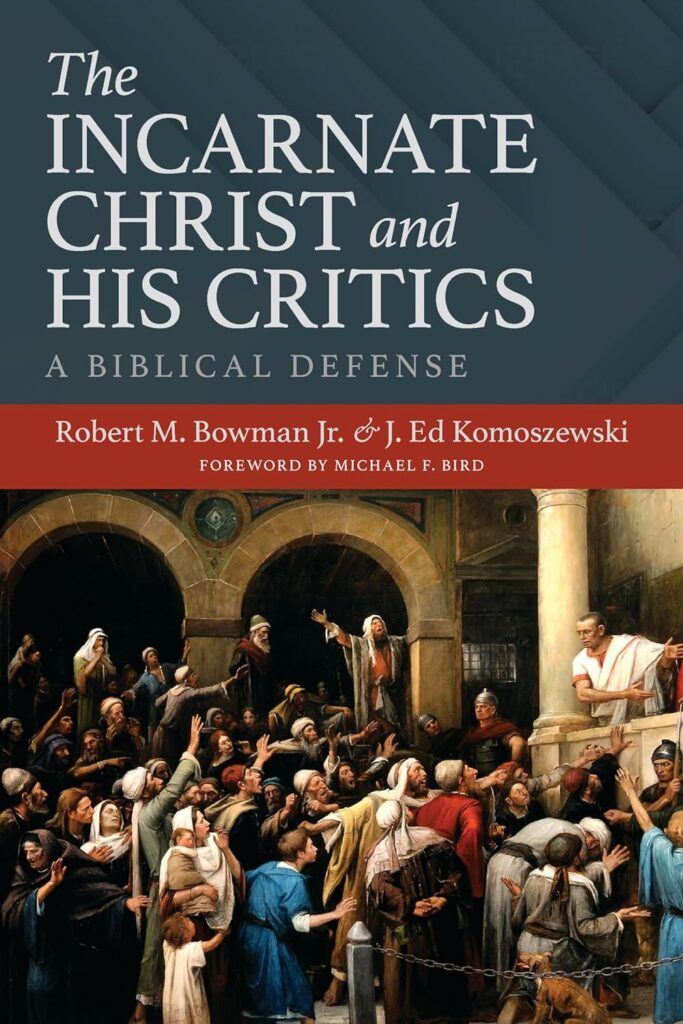
Rob Bowman and Ed Komiszewski, The Incarnate Christ and his Critics: A Biblical Defense (Kregel, 2024)
This remarkable book works on two levels at once. At a quick read, it delivers solid arguments and evidence for the deity of Christ in a memorable way. The authors make their case, show their work, and equip believers with immediately accessible resources for meeting objections and dialoguing with the doubtful. It is thus an effective tool for apologetics and Christian instruction. But at another level, when studied more thoroughly, this volume is a kind of miniaturized research library or an index of the best and most current research on Jesus. I know of no other book that manages to function at both levels simultaneously with such expertise, good judgement, and poise. Highly recommended, both for reading and for keeping on hand as a reference tool.
Jacqueline Service,
Triune Well-Being: The Kenotic-Enrichment of the Eternal Trinity (Fortress, 2024)
Carrying out a remarkable thought project with remarkable thoroughness, Service undertakes to confess God’s all-blessedness as a reality that is dynamic and perichoretic. She proposes a novel category, divine self-enrichment, and then gladly accepts the challenging task of expounding this new proposal entirely within the classical guidelines of aseity, simplicity, perfection, fullness, and immutability. The result is real progress toward an important goal.
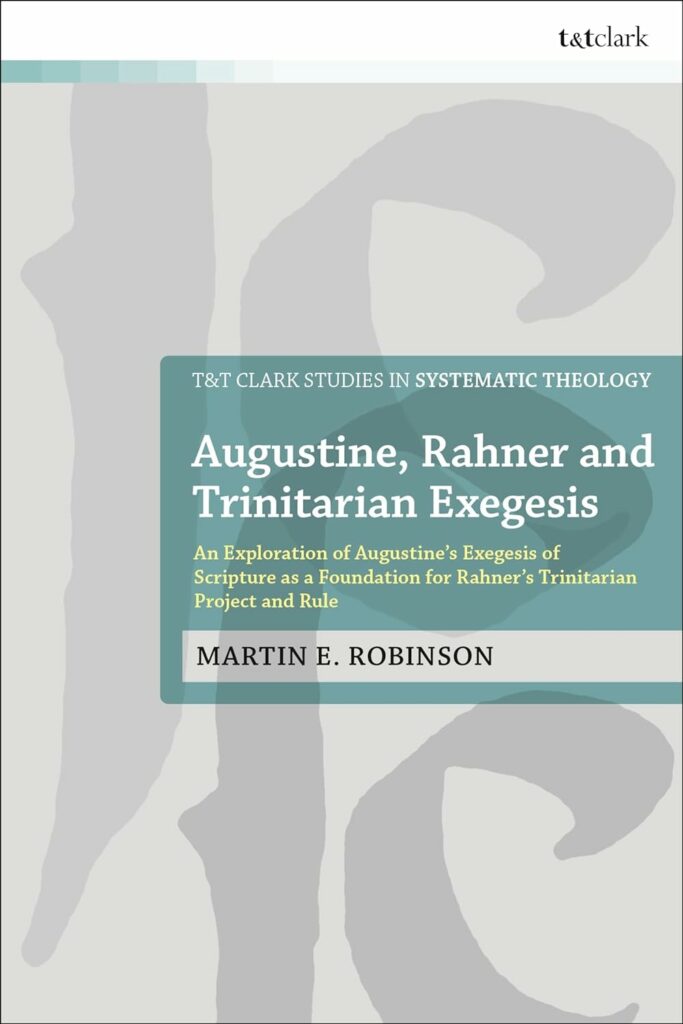
Martin E. Robinson,
Augustine, Rahner, and Trinitarian Exegesis: An Exploration of Augustine’s Exegesis of Scripture as a Foundation for Rahner’s Trinitarian Project and Rule (T&T Clark, 2024)
The renewal of trinitarian theology in the late twentieth century took place in a climate of Augustine-forgetfulness sometimes expressed as Augustine-antipathy. We have long needed a re-reading of that influential movement, but with a better understanding of Augustine’s trinitarianism in play. Martin Robinson carries out this important task, and the result is illuminating, surprising, and significant for the ongoing work of trinitarian exegesis.
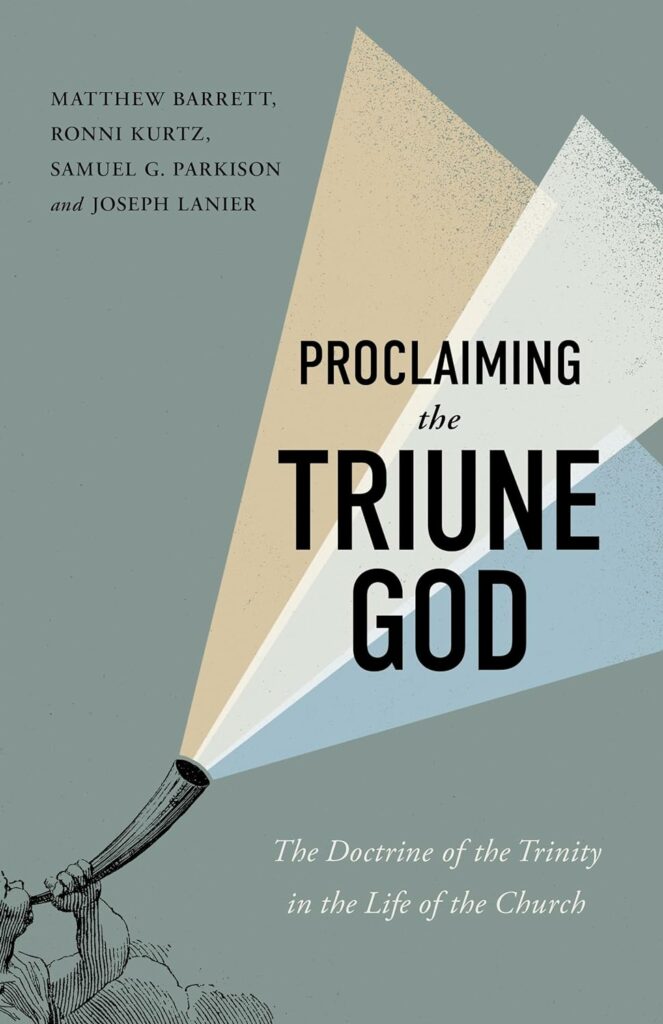
Matthew Barrett, Ronni Kurtz, Samuel Parkison, and Joseph Lanier, Proclaiming the Triune God: The Doctrine of the Trinity in the Life of the Church (B&H Academic, 2024)
This helpful overview of trinitarian theology began as sermons, and while the authors don’t hold back on doctrinal details, they give special attention to why the theology matters for the spiritual lives of all believers. I can think of several books that vault up into the doctrine and expertly carry out maneuvers worth applauding, but very few that make sure to stick the landing. High points for this undertaking.
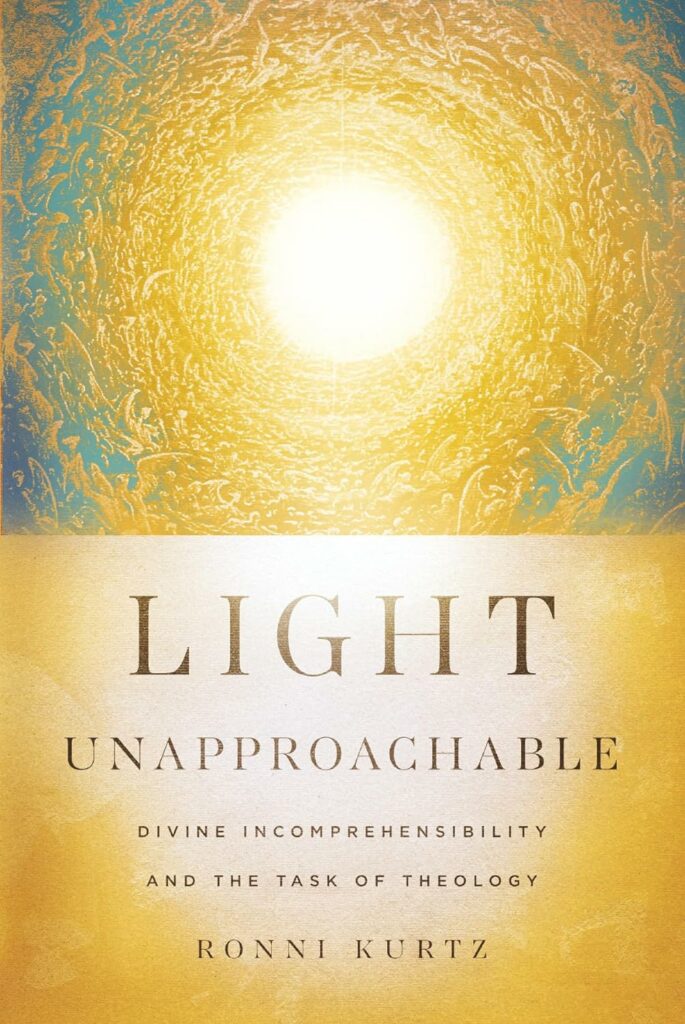
Ronni Kurtz
Light Unapproachable: Divine Incomprehensibility and the Task of Theology (IVP Academic, 2024)
Kurtz’s Light Unapproachable starts out from solid, Christian common sense about how God accommodates revelation to us, then elaborates it with biblical analysis, fortifies it with historical witnesses, and applies it to a project in theological method with great promise for a wide range of readers.
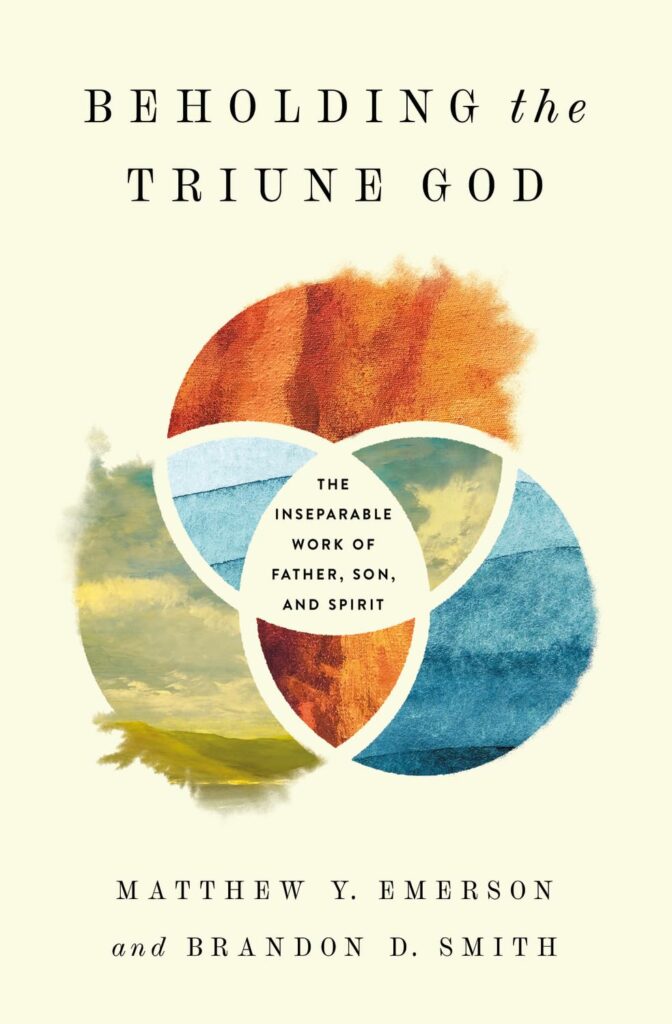
Matthew Emerson and Brandon Smith, Beholding the Triune God: The Inseparable Work of Father, Son, and Spirit
(Crossway, 2024)
Two trustworthy theologians team up on a project to explain why it’s never enough to say that the persons of the Trinity team up on projects. There is a much deeper unity to the work of the triune God, and this short, readable book directs our attention to it.
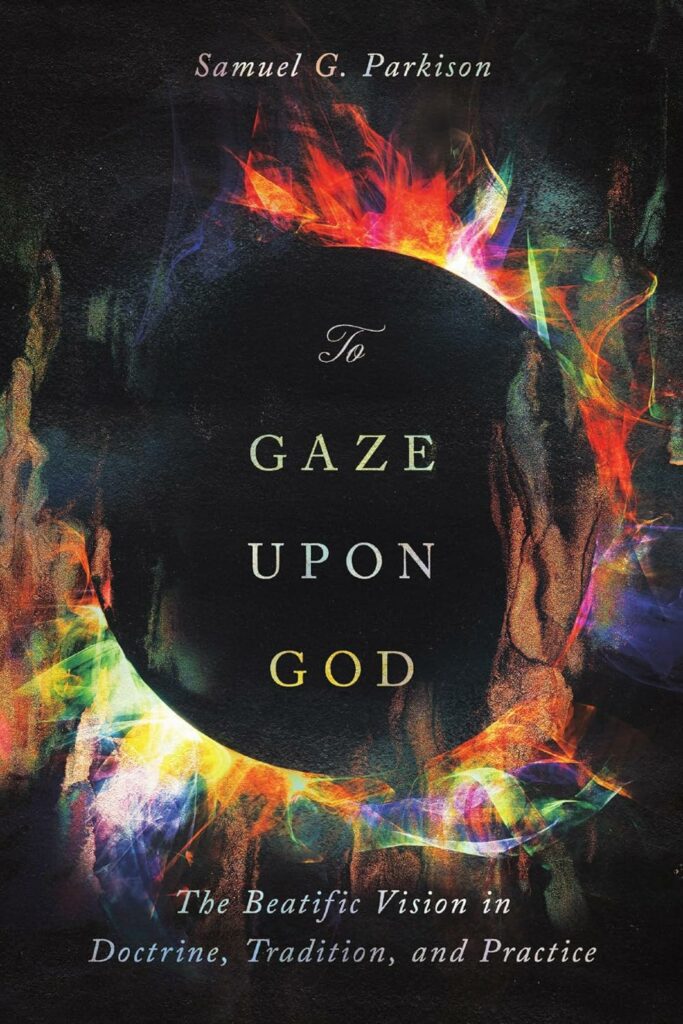
Samuel Parkison, To Gaze Upon God:The Beatific Vision in Doctrine, Tradition, and Practice (IVP Academic, 2024)
This book traces the full, long lines of the beatific vision from the Bible to today, with special attention to the near side, where the classic doctrine makes direct contact with evangelical Protestant commitments such as sola Scriptura and imputed righteousness. Late in the book, Parkison asks himself, ‘Is it right for a Baptist to talk in this way?’ It is a question worth pressing, and this is the book that answers it with a carefully considered, critical, and clear ‘yes!

Jonathan Black, 40 Questions About Pentecostalism
(Kregel, 2024)
This is a remarkable resource for understanding Pentecostalism. Refusing to settle for merely sociological descriptions of the movement, Black serves up a properly theological account, posing all the right questions and giving clear answers documented from Scripture and from a dazzling survey of international Pentecostal primary texts. The resulting survey locates Pentecostalism securely within the vast common ground shared by all evangelical believers, while giving an appropriate amount of special attention to the unique ideas of Pentecostalism. I cannot imagine a better book to equip Christians for constructive conversations about these issues, under the guidance of the one Spirit (Eph 4:4).
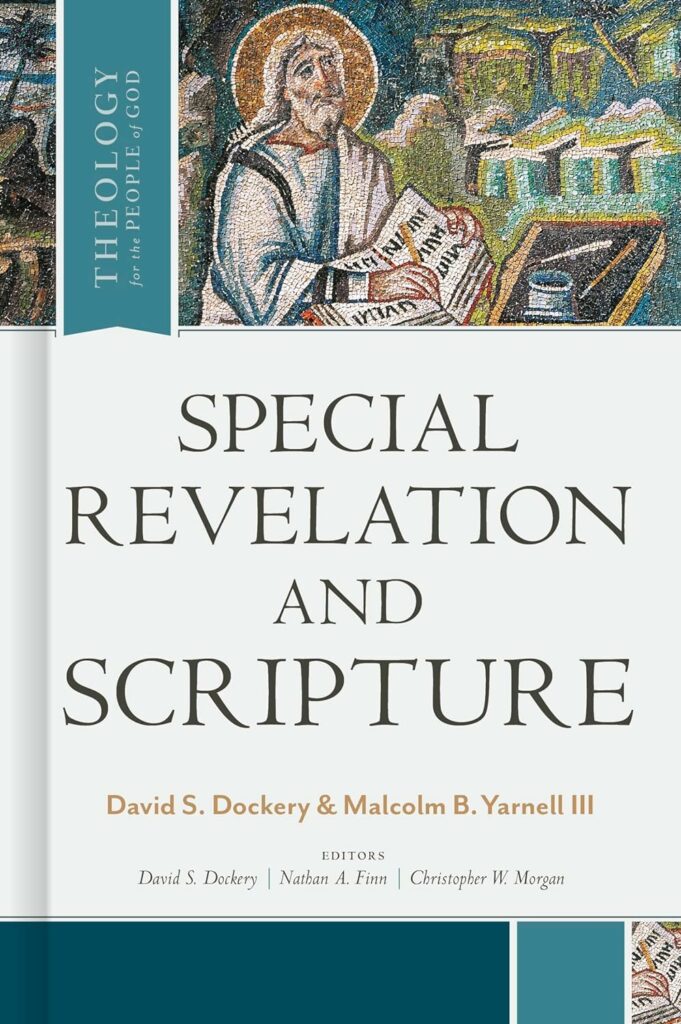
David S. Dockery and Malcolm B. Yarnell III,
Special Revelation and Scripture (B&H Academic, 2024)
When it comes to the doctrine of Scripture, conservative evangelicals face the challenge of needing to write the same book every generation or so, to restate and refresh their confession about the Bible. We are fortunate that Dockery and Yarnell have taken up this noble task today. Their deep curiosity, firm conviction, long memory, lively pastoral instinct, and courageous interdisciplinarity make this volume a powerful new statement on revelation and scripture. Its integration of systematic theology and exegesis will make it an especially formative volume for students.
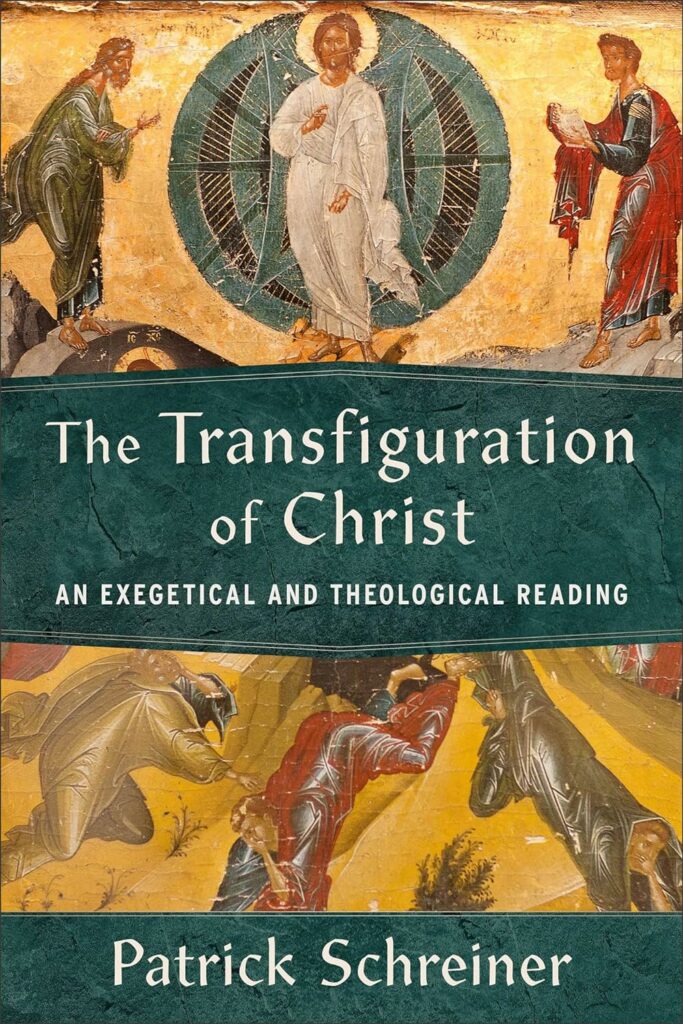
Patrick Schreiner, The Transfiguration of Christ: An Exegetical and Theological Reading
(Baker Academic, 2024)
Pondered as an isolated event, the transfiguration makes very little sense to us. Schreiner has learned the secret: don’t isolate it, but instead read it as having elements of both epiphany and apotheosis, preexistence and consummation, eternal sonship and messianic sonship. A spirited and energetic introduction to this neglected mystery of the life of Jesus.
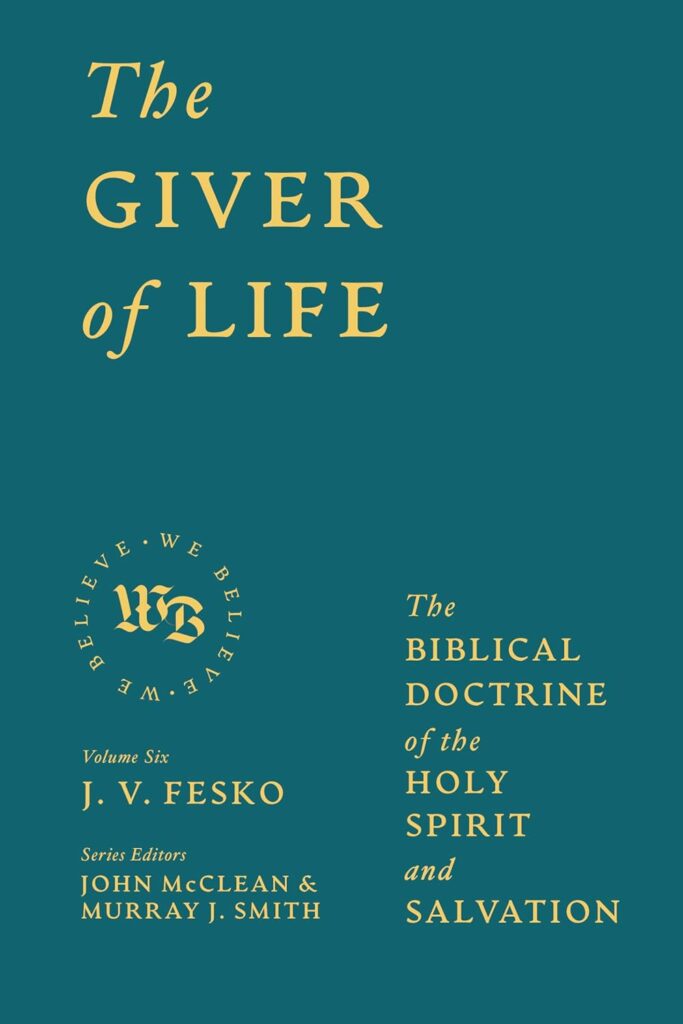
J.V. Fesko, The Giver of Life: The Biblical Doctrine of the Holy Spirit and Salvation (Lexham, 2024)
A spirited soteriological synthesis, gathering up a distinctively Protestant doctrine of salvation under the sign of Nicene pneumatology. Fesko is clear in his decisions, transparent in his method, particular about his (covenantal and Reformed) confession, and generous in his scope. This volume is an exemplary entry in the We Believe series.
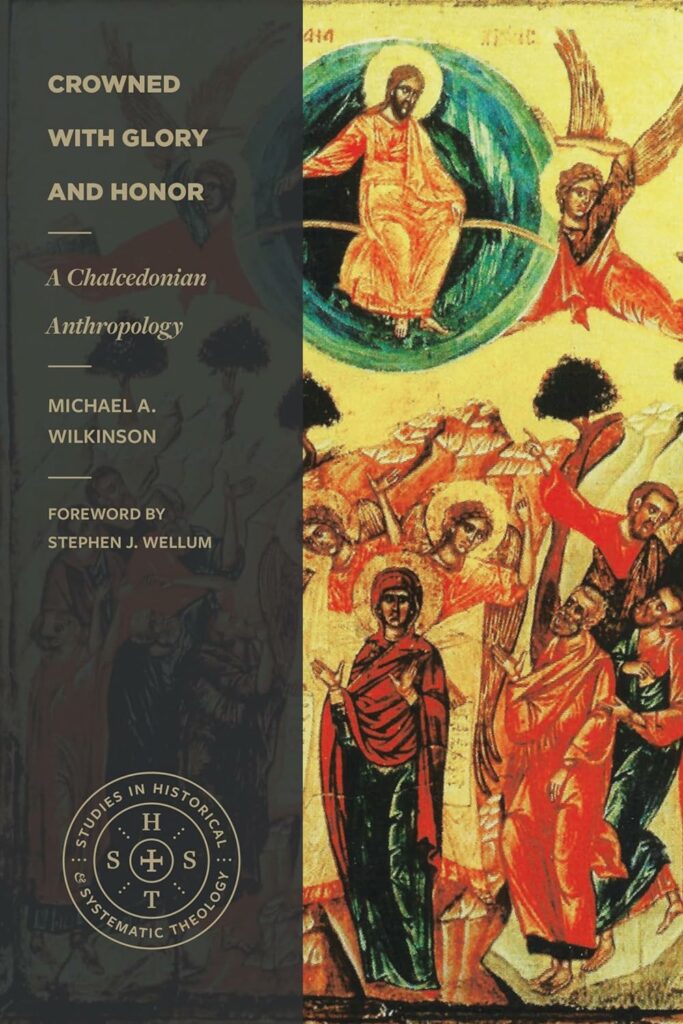
Michael A. Wilkinson, Crowned with Glory and Honor: A Chalcedonian Anthropology (Lexham, 2024)
Wilkinson’s investigation of a Chalcedonian anthropology gathers together resources from historical, biblical, and systematic theology that should have been brought together long ago. … This study is at the same time deeply conservative and courageously innovative.
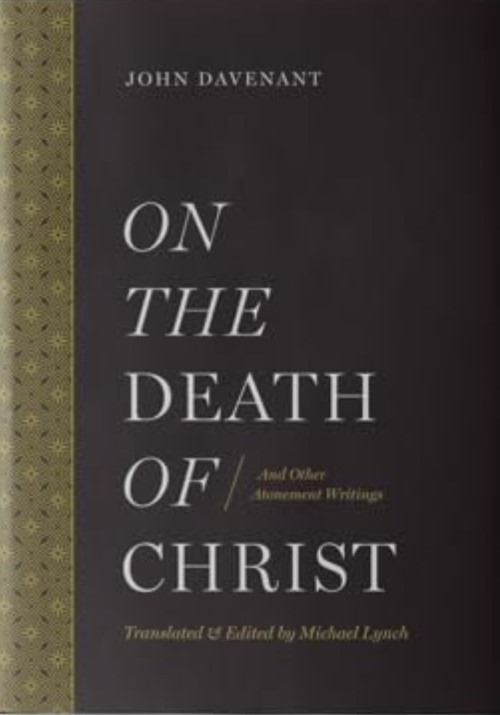
John Davenant, On the Death of Christ: And Other Atonement Writings, trans and ed by Michael J. Lynch (Davenant Press, 2024)
John Davenant’s classic treatise on the extent of the atonement has long lingered in a twilight zone of semi-availability for most readers: a dated translation in archaic type face, appended to a two-volume commentary. Only the most motivated students would ever finish this reading, no matter how crucial it may prove to be for their theological interests. Lynch offers us now an edition that sets a clean, smooth translation in the midst of clear references and helps. An essential tool for pondering the atonement as Christ’s universal remedy for fallen human nature, while recognizing the ordained limits of its application.
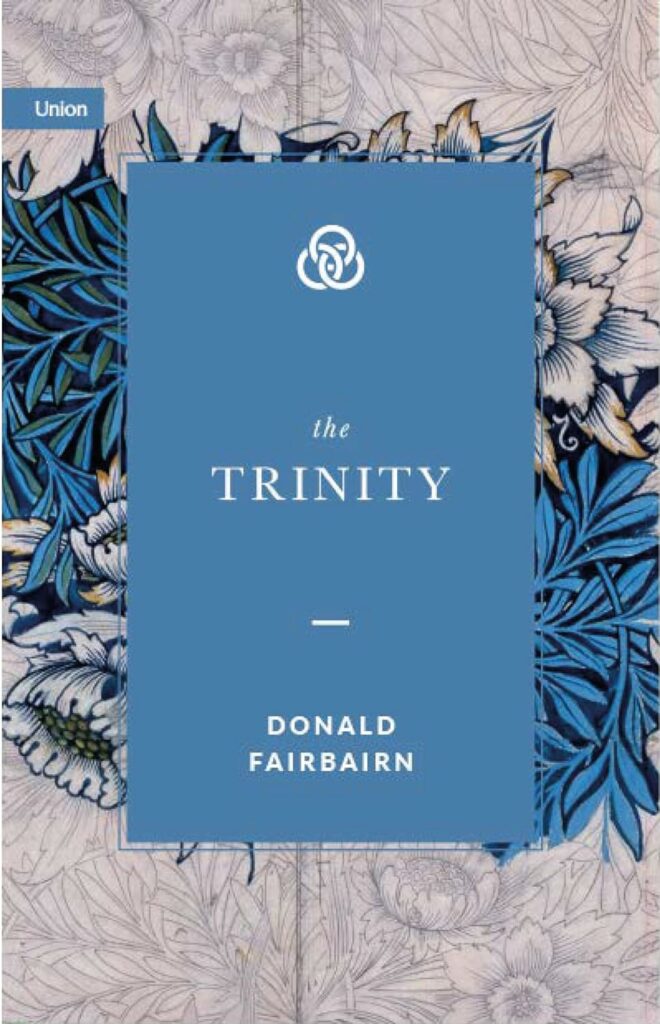
Donald Fairbairn, The Trinity (Union Publishing, 2024)
This little book opens a window to the vast and panoramic reality of the Triune God behind the entire world, before creation itself, and beneath the Gospel as its sure foundation.
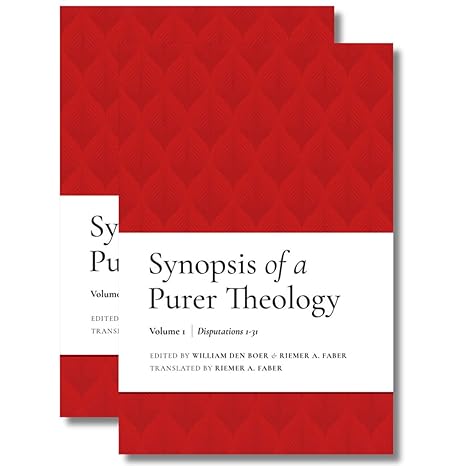
Synopsis of a Purer Theology, 2 Vols. (Davenant Press, 2023)
Finally in English in a single volume, the Leiden Synopsis can now take its well-deserved place as a standard reference work for a wide readership. Its clear organization, careful distinction-making, transparency to scriptural sources, respectful engagement with the full Christian tradition, and organic coherence as a system make it a tool to be used regularly. The four authors’ steady awareness of their location in a particular confessional tradition makes their work eminently useful not only for those who share their full confessional position, but also for those who listen in to overhear Reformed Protestant theology at its best.
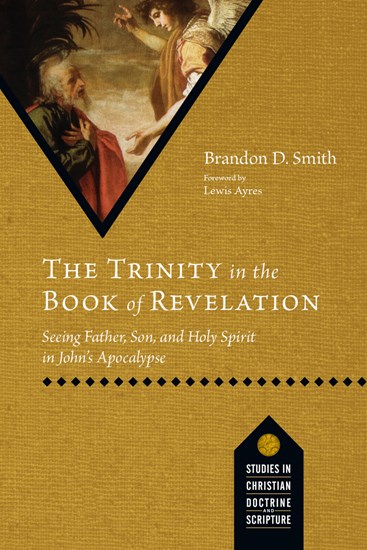
Brandon D. Smith, The Trinity in the Book of RevelationSeeing Father, Son, and Holy Spirit in John’s Apocalypse (IVP Academic, 2022)
The old insult obscurum per obscurius means trying to explain one obscure thing by way of something even more obscure. Surely a study of the Trinity in the book of Revelation runs this risk, we might fear. But instead, Brandon Smith surprises us with clarity and calmness, a firm grasp of the main lines of Biblical truth and a compelling vision of the big picture of Christian doctrine. Highly recommended as an exercise in reading Scripture with classic doctrinal categories for the purpose of knowing God.
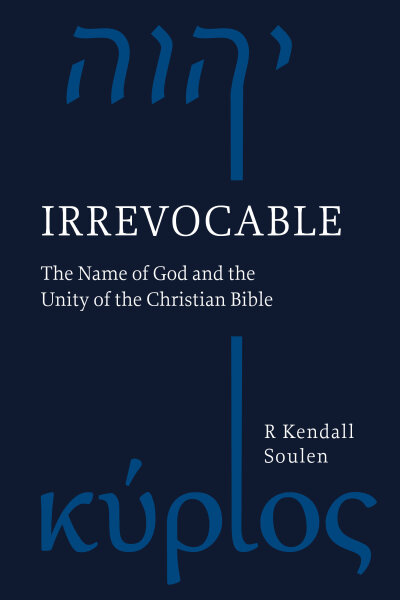
R. Kendall Soulen, IrrevocableThe Name of God and the Unity of the Christian Bible (Fortress Press, 2022)
Irrevocable is a concise statement of the case for why Christian theology, in its Trinitarianism most of all, should “orbit the unspoken Tetragrammaton.” Soulen’s project has always been stimulating and provocative, but here he has refined and reformulated his arguments to make them more incisive, more constructive, and more immediately useful for theologians from many traditions. This book has helped me to theologize more faithfully, and even to read the Bible more accurately.
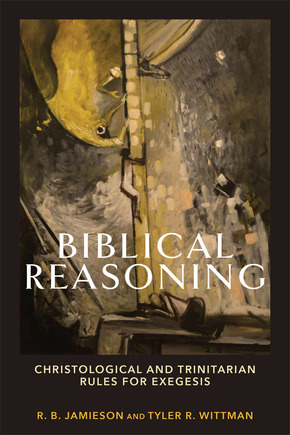
R. B. Jamieson and Tyler R. Wittman, Biblical Reasoning: Christological and Trinitarian Rules for Exegesis (Baker Academic, 2022)
In content, this book is a profound study of the triune God and the incarnate Son. But in form and method, it’s a master class in how to read the Bible directly and accurately, aided by classic, doctrinal wisdom. Introducing readers to clear rules and proven tools, Jamieson and Wittman put theology where it belongs: in service of knowing God through his word. Biblical Reasoning is a triumph, a gift given to equip the saints for the work of interpretation.
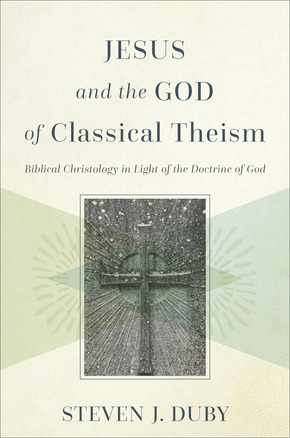
Steven J. Duby, Jesus and the God of Classical Theism: Biblical Christology in Light of the Doctrine of God (Baker Academic, 2022)
This wonderfully helpful book shows how to take up the Bible’s passionate presentation of Jesus without needing to let go of the traditional, high doctrine of God. Patiently addressing recent worries while carefully engaging the full witness of Scripture, Duby reunites theological goods that have too often been sundered from each other.
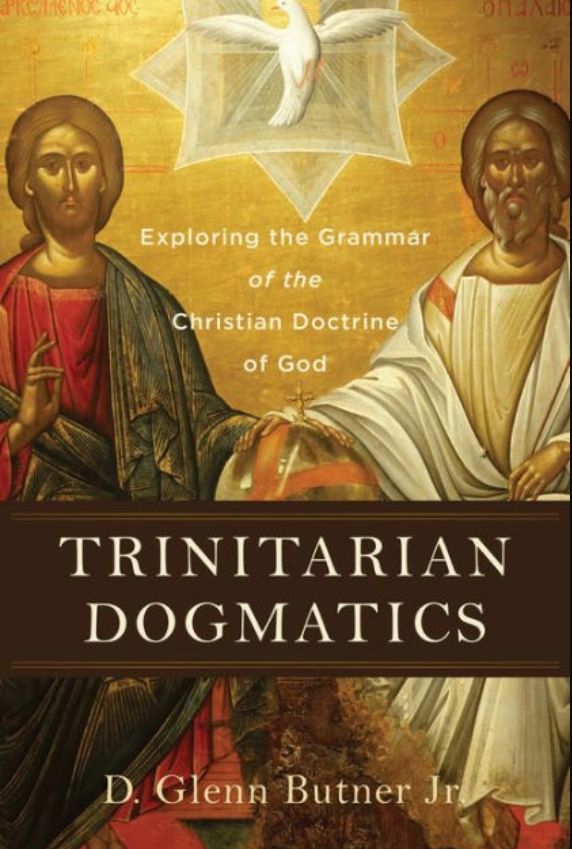
D. Glenn Butner, Trinitarian Dogmatics: Exploring the Grammar of the Christian Doctrine of God (Baker Academic, 2022)
This book is exactly what we have been needing: an even-handed introduction to Trinitarianism that displays the conceptual foundations, building up the doctrine precept on precept, in proper sequence. By organizing the material conceptually rather than historically, Butner frees himself to call on an exceptionally wide range of witnesses from all eras of theological history and all corners of the theological world. Trinitarian Dogmatics resources contemporary readers with much-needed clarity, breadth, and depth.
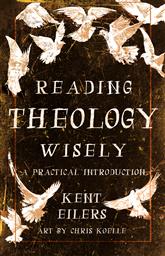
Kent Eilers, Reading Theology Wisely: A Practical Introduction (Eerdmans, 2022)
We need all kinds of invitations to theology, and in this book Kent Eilers extends a unique kind of welcome. Come in here, he beckons: unpack your bags, look around, and make yourself at home in the household of theological reading.
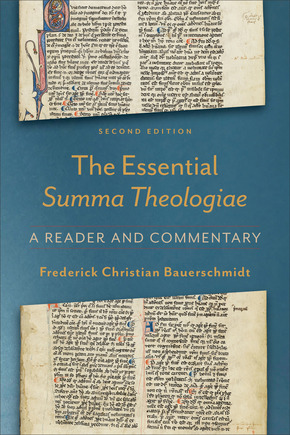
Frederick Christian Bauerschmidt, The Essential Summa Theologiae: A Reader and Commentary (2nd ed; Baker Academic, 2021)
This is it: the ideal set of Summa selections for most classrooms, as well as for readers who wish they could take a class on Thomas Aquinas with a professor capable of paraphrasing the angelic doctor, explaining and illustrating his thought, while pointing to further readings both medieval and modern.
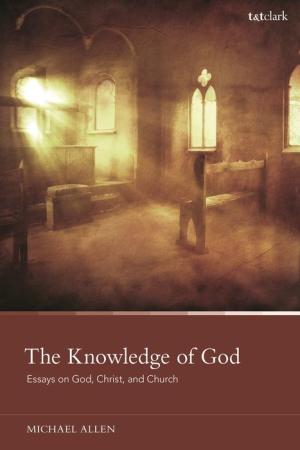
Michal Allen, The Knowledge of God: Essays on God, Christ and Church (T&T Clark, 2022)
These chapters exhibit a Reformed theological self-understanding amply catholic enough for Christians of many confessions and traditions to find themselves implicated and interested in. Michael Allen asserts the definite orientation of his overall systematic project more clearly here than in any of his previous works.
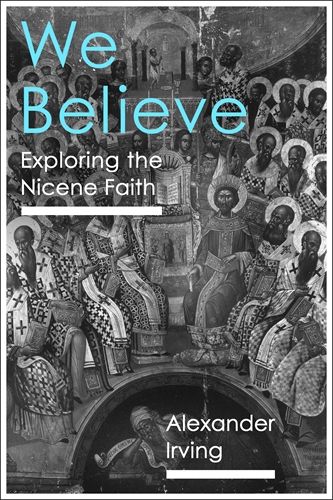
Alex irving, We Believe: Exploring the Nicene Faith (IVPBooks, 2021)
The simple phrase “the Nicene Faith” is a helpful way of pointing to the doctrinal core of Christian belief. Yet the phrase condenses so much profound analysis, simplifies so many interpretive complexities, and summarizes so much historical controversy, that it requires some unpacking. Irving’s book is the perfect guide to the depths beneath the motto.
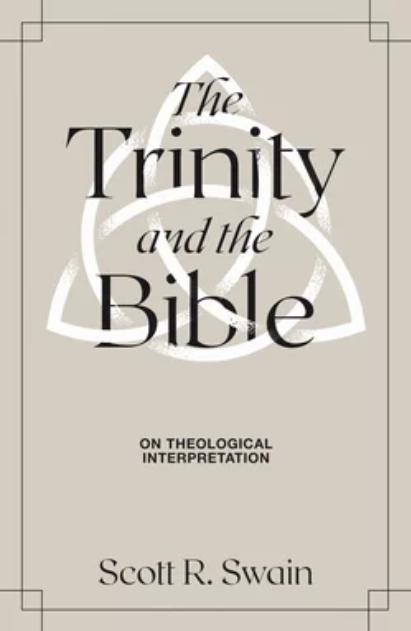
Scott Swain, The Trinity and the Bible: On Theological Interpretation (Lexham Press, 2021)
Books about theological interpretation often fail to engage the material content of the Christian doctrine of God; books on the doctrine of God sometimes fail to reflect on their own hermeneutical method, or to do actual exegesis. Scott Swain has put together the perfect combination here. This highly readable volume leads readers into Scripture and the doctrine of the Trinity simultaneously. It is deeply informed, cogently argued, and elegantly written.
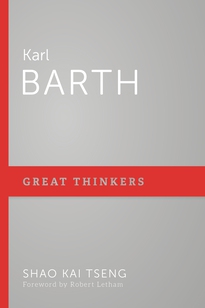
Shao Kai Tseng, Karl Barth (Outstanding Thinkers) (P&R Publishing, 2021)
Tseng accomplishes much in this little volume: He provides not only a brief overview of Barth’s theology, but also an account of its ongoing global significance, not least in Asia. Above all, Tseng is a confident interpreter who carries out a lively, constructive, evangelical engagement with Barth’s theology at a fundamental level.
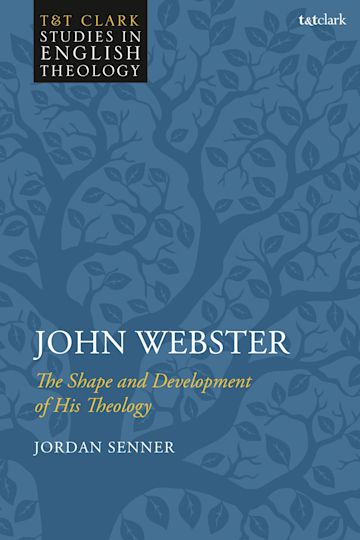
Jordan Senner, John Webster: The Shape and Development of his Theology (T&T Clark, 2021)
Webster wrote very carefully, with the result that he is easy to quote but hard to paraphrase. In this excellent account of his theology, Jordan Senner has done the hard work of clarifying Webster’s crucial moves and key claims by way of alternative terms and different categories. Senner’s outlook is comprehensive and his judgments are keen. The result is an uncommonly helpful presentation of Webster’s thought, ideal for students and stimulating for contemporary theology.
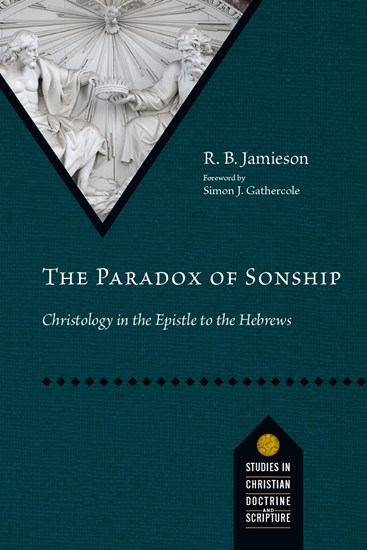
R.B. Jamieson, The Paradox of Sonship:Christology in the Epistle to the Hebrews (IVP Academic, 2021)
The Paradox of Sonship illuminates the central Christological conundrum of Hebrews by reading the book in dialogue with classical theological categories. Conventional academic practice has long warned against allowing doctrine and exegesis to make such close contact, but here Jamieson demonstrates the sweeping benefits of reuniting them. The drama, the tension, and even the sheer literary suspense of Hebrews come to life in dialogue with Nicene and Chalcedonian categories. I hope to see many more books that follow the path opened up here.
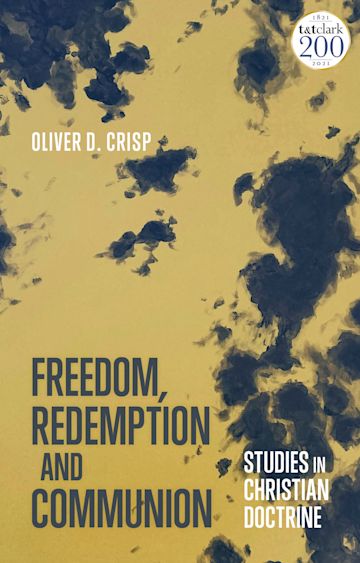
Oliver D. Crisp, Freedom, Redemption and Communion: Studies in Christian Doctrine (T&T Clark, 2021)
In these essays, Oliver Crisp moves several steps deeper into the soteriological core of Christian doctrine. Always taking his bearings from the doctrines of God and Christ, he engages in free discussion with a wide range of classic and contemporary theological positions, clarifying not only his own views but those of his dialogue partners.
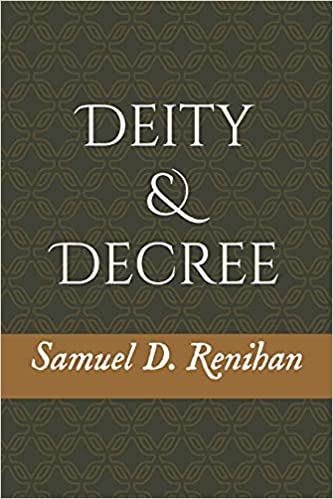
Samuel D. Renihan, Deity and Decree, A Primer
Resourceful is the word for this primer on the doctrine of God. Renihan has mastered a precious bibliography of Protestant theological sources, drawing especially on works originally written in English, and communicates their essential message through paraphrase, synthesis, summary, and judicious quotation. It is a procedure that works especially well for the foundational doctrines of God’s unity, trinity, and decree, because it is precisely here that contemporary theology stands in need of being catechized by the older, confessionally grounded theologians of previous generations.
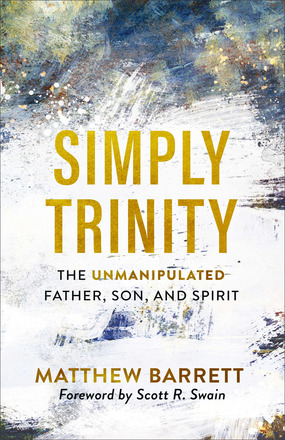
Matthew Barrett, Simply Trinity: The Unmanipulated Father, Son, and Holy Spirit (Baker, 2021)
Matthew Barrett has the evangelical instinct for the classic, time-tested, deeply traditional biblical teaching about the Trinity. This book is the story of his joy in finding that doctrine, after having to clear aside some rubble and debris that had accumulated on top of it in recent years. Simply Trinity proclaims the good news of the unmanipulated doctrine of the Triune God.
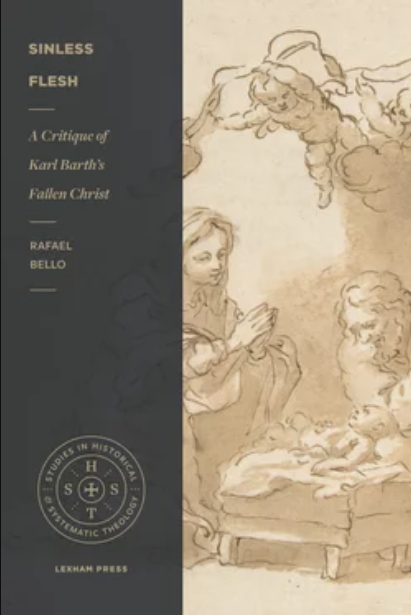
Rafael Bello, Sinless Flesh: A Critique of Karl Barth’s Fallen Christ (Lexham Press, 2020)
This question, whether the human nature assumed by the Son is fallen or unfallen, is one of the most vexed and complicated questions in theology. Bello’s argument here is a fine piece of theological research, approaching modern discussions by bringing into play patristic (inseparable operations), medieval (the grace of union), and Protestant scholastic (federal headship) resources.
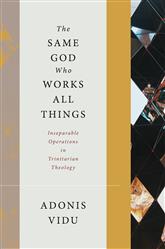
Adonis Vidu, The Same God who Works All Things: Inseparable Operations in Trinitarian Theology (Eerdmans, 2021)
Contemporary theology has suffered from the absence of a careful, patient investigation of inseparable trinitarian operations. Any book meeting this need would be cause enough for gratitude. But we are especially fortunate to have such a book from Adonis Vidu, whose work combines analytic precision, scriptural depth, and a fully systematic scope of vision. The Same God who Works All Things is sure to rank among the most important studies in trinitarian theology published in this decade. I consider it required reading that will sharpen current thinking considerably.
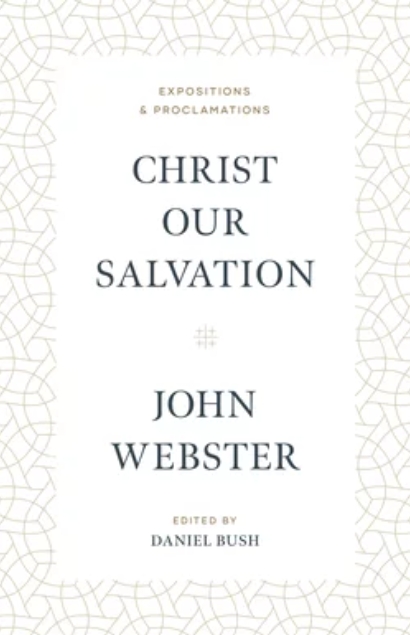
John Webster, Christ Our Salvation: Expositions and Proclamations (Lexham Press, 2020)
Preaching in Oxford brought out the best in John Webster. Even as his academic theology grew in sophistication, subtlety, and scope, his sermons gave him space to hear and speak the very words of God. By his own admission, his work at Oxford was sometimes overly defensive, but in the pulpit he summoned the confidence to speak of God and the gospel defenselessly. Though these homilies have an elevated tone appropriate for college chapel, Webster’s voice here is more direct than allusive, more quotable than cautious, more wise than clever.
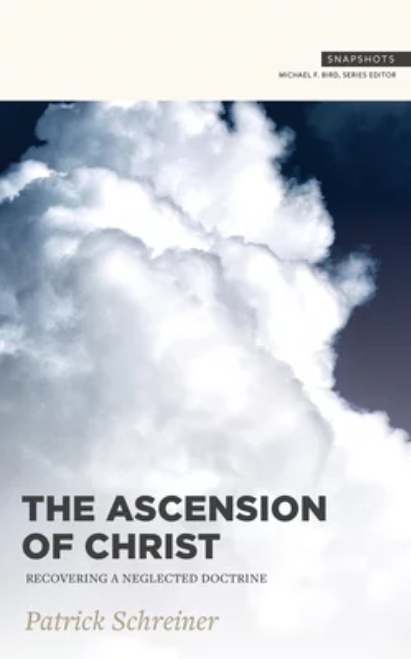
Patrick Schreiner, The Ascension of Christ: Recovering a Neglected Doctrine (Lexham Press, 2020)
Patrick Schreiner tells how, beginning from the book of Acts, he started looking around and soon came to see the ascension everywhere. That is exactly how this doctrine is: easy enough to overlook, but astonishing in its scope and significance as soon as you start paying attention. This book is a great guide to the importance of Jesus’ ascension, and an invitation to start seeing it everywhere.
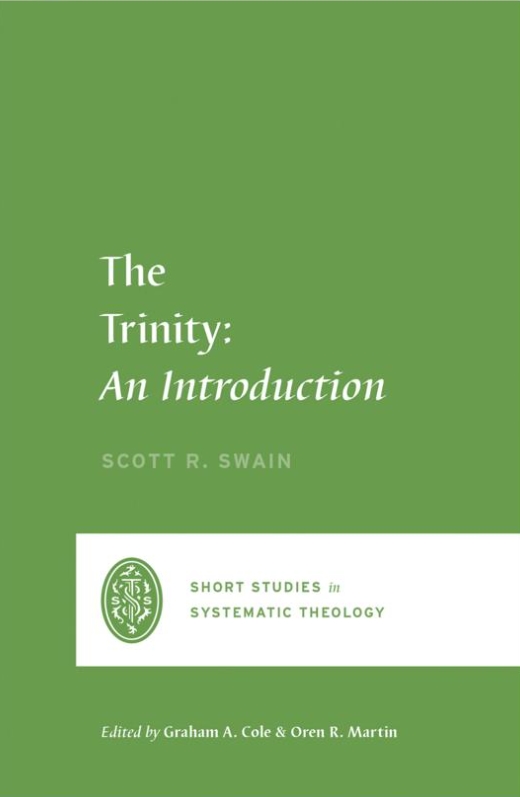
Scott R. Swain, The Trinity: An Introduction (Crossway, 2020)
What a powerful instrument this little book is, meeting the need of our moment for clear and precise teaching on this most important subject. Would you rather read a book on the Trinity that invites you into the worship of God and gives profound insight into his ways, or a book that is guaranteed to provide safe, reliable, responsible instruction? There is no need to choose: this book does it all, and in admirably brief compass.
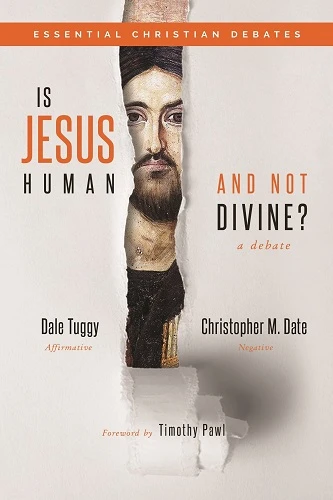
Dale Tuggy and Christopher Date, Is Jesus Human and Not Divine? (Areopagus, 2020)
There are two levels at which you can read this book. At the first level, because Dale Tuggy and Chris Date are well-prepared advocates of their sharply contrasting positions, the book works as the document of a good debate with plenty of clarifying clash. At the second level, because Tuggy and Date are both very active online and in a range of media, the book works as a clearing house or index of the best sort of arguments scattered across the internet. The result is a reading experience well worth your time.
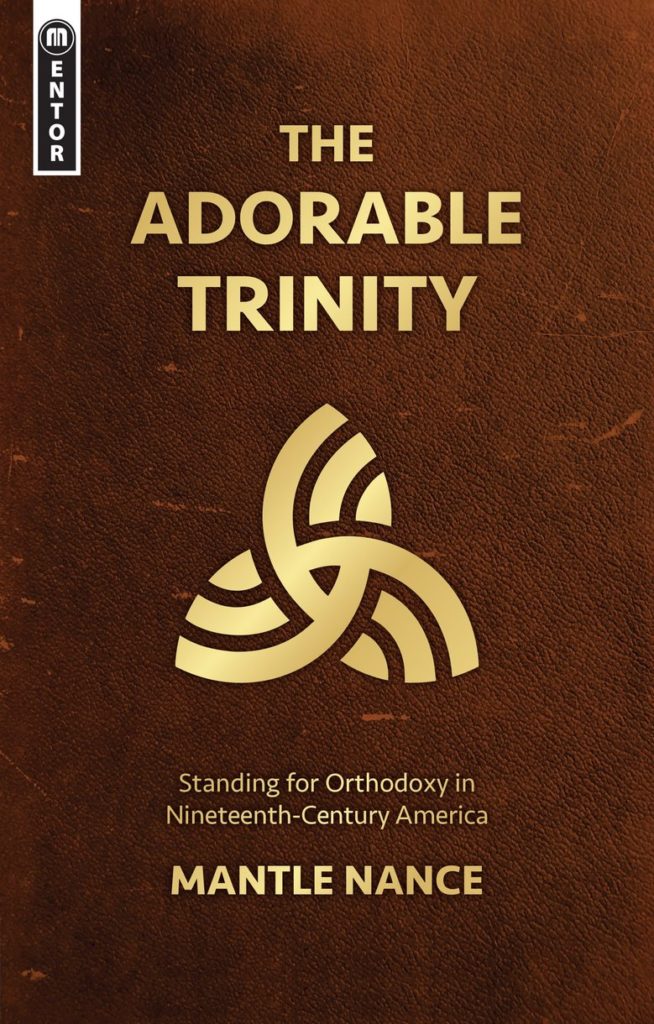
Mantle Nance, The Adorable Trinity: Standing for Orthodoxy in Nineteenth–Century America (Focus Publications 2020)
There is a certain lineage of southern Presbyterian theologians who, whatever their defects, nurtured a doctrine and devotion so intensely, pervasively, and uniquely trinitarian that they have long stood in need of closer study. What can account for this revival of excitement about the doctrine of the Trinity at this particular time and place? This book unlocks at least one part of the secret: these theologians and pastors knew themselves to be contending against an organized unitarian movement. By establishing this polemical context for their work, and then reading them sympathetically against this background, Nance has shed much light on an often ignored phase of American theological history.
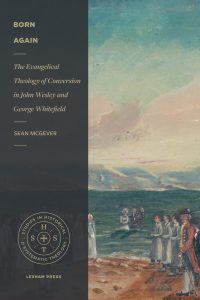
Sean McGever, Born Again: The Evangelical Theology of Conversion in John Wesley and George Whitefield (Lexham, 2019)
Evangelical religion is still shaped by a view of conversion that reached its classic form in the eighteenth century. McGever’s patient analysis of the two leading preachers of conversion, Wesley and Whitefield, is especially helpful at showing the broad common ground they shared regarding what conversion is for, and how it is fulfilled. In doing so, it also clarifies their points of disagreement, especially regarding how conversion begins.
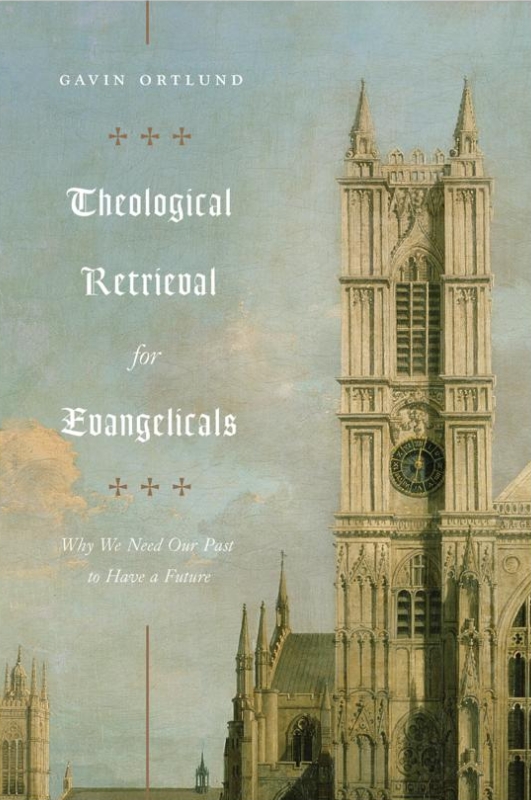
Gavin Ortlund, Theological Retrieval for Evangelicals: Why We Need Our Past to Have a Future (Crossway, 2019)
Ortlund argues compellingly that evangelicals can and should claim the classic theological heritage as their own. And then he actually does it, opening up the treasury of the great Christian tradition and dispensing theological wisdom with both hands. To look into this book is to look through a doorway into a world where there is such a thing as evangelical theology that is richly resourced, deeply informed, and ready for action.
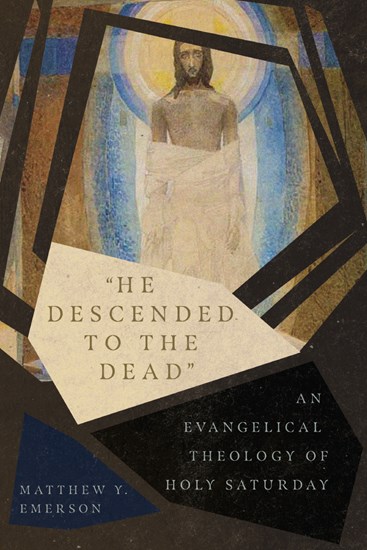
Matthew Emerson, He Descended to the Dead: An Evangelical Theology of Holy Saturday(IVP Academic, 2019)
I can’t recall the last time I read a new book that gave me so much insight into an event from the mission of Jesus Christ. In this retrieval of the doctrine of Christ’s descent to the dead, Emerson clears away misconceptions, corrects erroneous interpretations, establishes solid foundations, and explores the vast implications of this single line of the classic creed. This book deserves a wide readership, but will be especially helpful for evangelicals who have mumbled their way through, or have misunderstood, the credal descent clause.
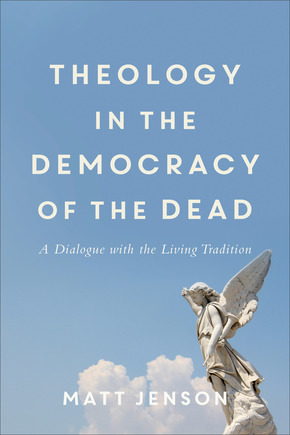
Matt Jenson, Theology in the Democracy of the Dead: A Dialogue with the Living Tradition (Baker Academic, 2019)
This book invites readers to learn the craft of Christian theology from eleven of its master practitioners. Matt Jenson shows himself to be more than just an uncommonly deep and skillful reader of these theological classics, though that alone would make these chapters worth close study. He goes further, proving to be that rare guide who can teach others to read better by reading alongside him. Theology in the Democracy of the Dead is a rare opportunity for theological apprenticeship.
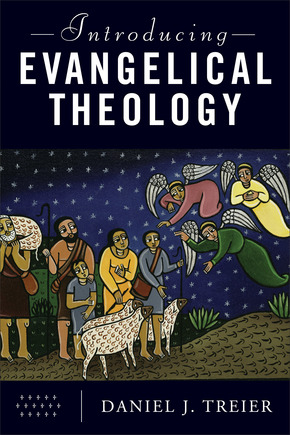
Daniel Treier, Introducing Evangelical Theology (Baker Academic, 2019)
Real faith seeks deeper understanding, and when it does so, it inevitably reaches out for help. This book is that help. Treier has produced a tool for training the evangelical mind, and for training the mind evangelically. Introducing Evangelical Theology is an instrument of catechesis designed for our times.
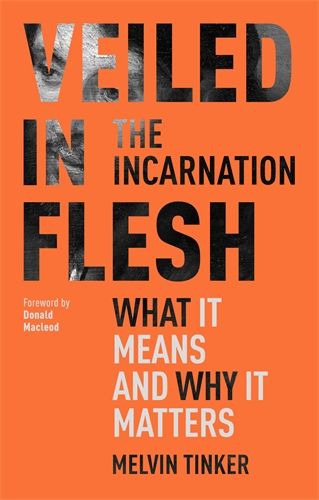
Melvin Tinker, Veiled in Flesh: The Incarnation: What it Means and Why it Matters (IVP UK, 2019)
The incarnation is such an overwhelming doctrine –so central in its immediacy, so vast in its implications, so deep in its importance– that we can almost excuse preachers and teachers who feel too intimidated to dwell on it in much detail. But there is a way to ponder the depths of this doctrine without falling into error or drifting into unprofitable speculation. This fine book points out that way: grounded in scripture, guided by the great creeds and confessions, nourished by spiritual experience, and always within easy distance of pastoral application, Veiled in Flesh is an invitation to deep reflection on the incarnation.
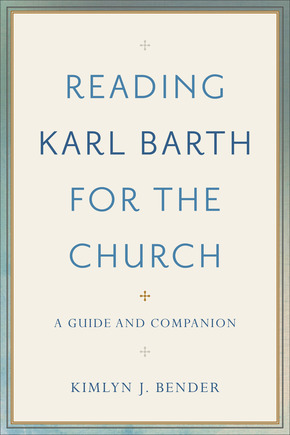
Kimlyn Bender, Reading Karl Barth for the Church: A Guide and Companion (Baker, 2019)
Confident that the voice of Karl Barth can reach, and teach, and theologically form Christians beyond the academy, Kimlyn Bender has put together a very welcoming guidebook to encourage people to read the Church Dogmatics for themselves. Bender is well aware of the obstacles readers will face in doing so; in this book he provides a set of tools to keep new readers out of the ruts of some settled misinterpretations, to find detours around those places where Barth’s own idiosyncracies distract from his main point, and to draw attention to the great things that Barth found in God’s revelation.
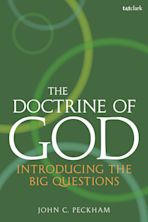
John C. Peckham, The Doctrine of God: Introducing the Big Questions (London: T&T Clark, 2019)
This is an excellent guide for students to the key terms, positions, and names in contemporary discussions of the doctrine of God. The book is so well organized that it will be immediately helpful as an introduction. Peckham is a clear writer with a sharp eye for big ideas, central claims, and definitive statements.
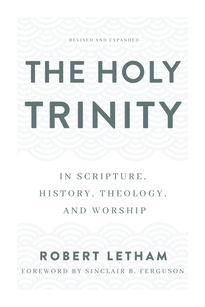
Robert Letham, The Holy Trinity:In Scripture, History, Theology, and Worship, Revised and Expanded (P&R, 2019)
When people ask me to recommend a good book on the Trinity, I start with a couple of short books designed mainly for devotional and motivational effects. But when I discern that they’re ready to take the next step into the subject, and can handle a bigger book with more exegetical depth, more historical scope, and a fair discussion of the range of views on this doctrine, I always point to Letham’s The Holy Trinity. This second edition ensures that I can continue sending students to Letham for helpful guidance and confident teaching about this central doctrine.
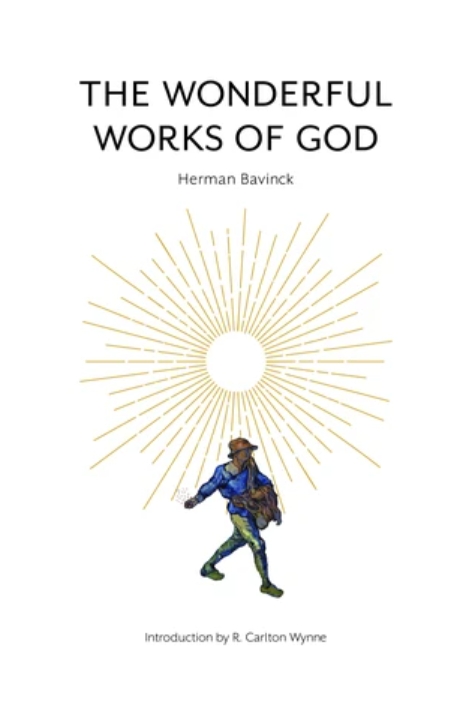
Herman Bavinck, The Wonderful Works of God (Westminster Seminary Press)
Among all the mighty works of Bavinck, this shorter, one-volume theology stands out as something especially clear and vigorous, warm and readable. By skipping over most of the details of doctrinal history (so helpfully treated in his multi-volume Dogmatics), Bavinck managed to bring out the main lines of the Christian system of truth, and its character as a confession of God’s works. It is wonderful to have this classic back in print and readily available.
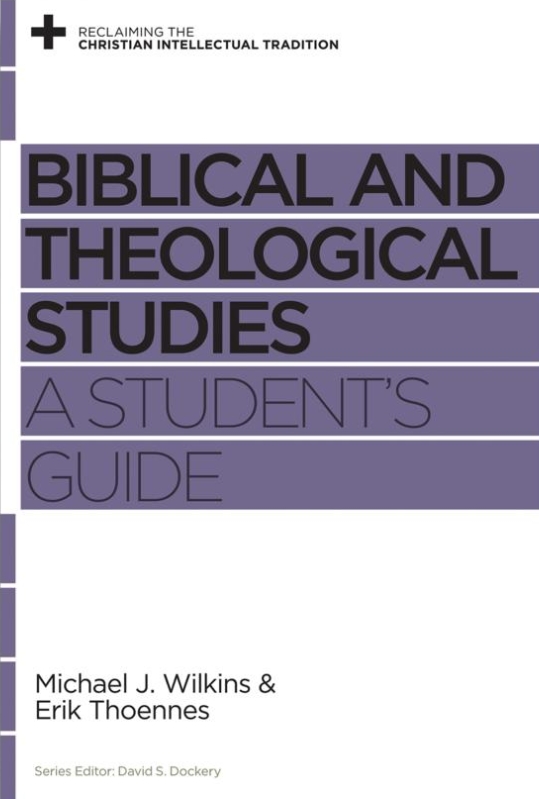
Michael J. Wilkins and Erik Thoennes, Biblical and Theological Studies: A Student’s Guide (Crossway, 2018)
They say “well begun is half done,” and this introduction to biblical and theological studies will set students up for success from the start. Wilkins and Thoennes seem to be mind-readers as they skillfully anticipate so many of the topics, terms, and names that students will wonder about, and answer them here in advance. A great introduction to a vast field of learning.
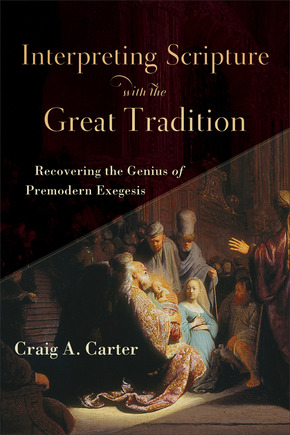
Craig Carter, Interpreting Scripture with the Great Tradition (Baker Academic, 2018)
Craig Carter’s Interpreting Scripture with the Great Tradition is a timely intervention into the contemporary conversation. I nearly called it an interruption because the book is so feisty, blunt, and urgent. But Carter avoids rudeness and rashness; he has obviously been listening very carefully to the major voices for some time, and now he makes his contribution: a strategic re-narrating of the standard account of premodern exegesis. In Carter’s account, key doctrines (Christology and Trinity) loom large, as do certain capital letters (Great Tradition; Christian Platonism). This is a stimulating and accessible account of how to carry on reading the Bible theologically.
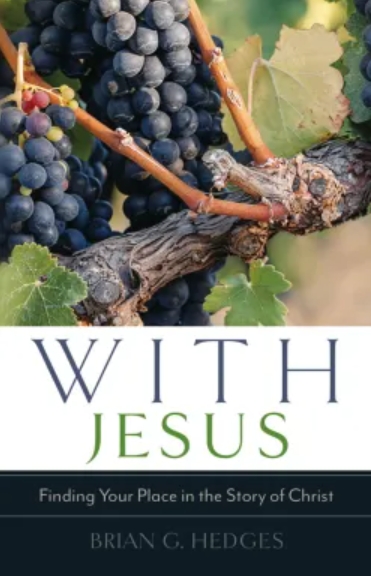
Brian Hedges, With Jesus: Finding Your Place in the Story of Christ (Shepherd Press, 2017)
When we think about the Christian life as union with Christ, we often turn to Paul’s letters where the doctrine is explained so clearly. But this book equips us to go one step further in: To take up the story of Jesus itself and find our salvation in each of the major moments of the Gospels. So richly traditional that it may strike some readers as novel, Brian Hedges’ new book is an invitation to a profound encounter with the saving life of Christ.
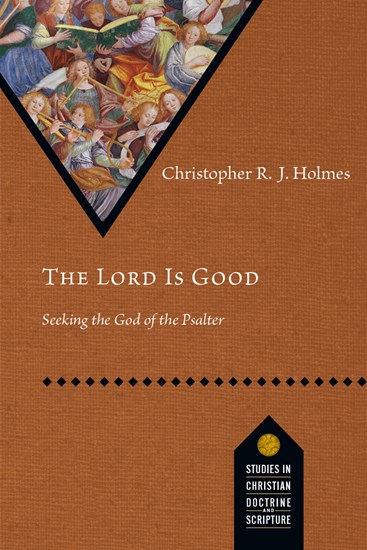
Chris Holmes, The Lord is Good: Seeking the God of the Psalter (IVP Academic, 2017)
God is good, but how much more can we really say once we’ve said that? Holmes manages to say quite a lot more aobut it in this unique study, an extended conceptual gloss on the Psalms with help from Augustine, Aquinas, Barth, and Sonderegger among others. Crammed with suggestive ideas, well-resourced from the great tradition, and deeply edifying in tone and intent, Holmes’ book reinstalls divine goodness at the center of theological concerns.
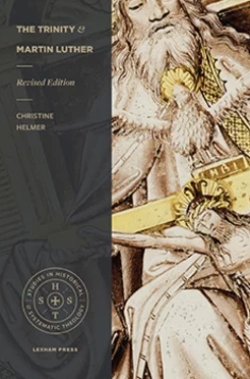
Christine Helmer, The Trinity and Martin Luther (Lexham Press, 2017)
Martin Luther never sat down to write a treatise on the Trinity in a format that modern systematic theologians would recognize, and sure enough, modern scholars have overlooked or misconstrued Luther’s understanding of the Trinity as a result. But he hid it in plain sight, in the unexpected genres of medieval-style academic disputations, hymns that echoed the Psalms, and wide-ranging expository sermons keyed to the liturgical calendar. Helmer’s book, ahead of its time when originally published and still on the leading edge of scholarship in this paperback edition, offers a very close reading of a handful of texts that surprise, illuminate, and suggest ways forward for theology today.
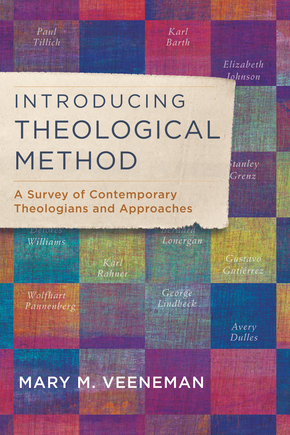
Mary Veeneman, Introducing Theological Method: A Survey of Contemporary Theologians and Approaches (Baker Academic, 2017)
I wish I’d had this book when I first started graduate school. Veeneman picks out a large number of major theological movements and calmly rehearses their methodological commitments. She catalogs their sources, their orienting questions, and their starting points, sometimes comparing them to each other but rarely declaring her own judgments. The result is almost a cheat sheet, letting students know in advance what to look for as they go on to read these authors.
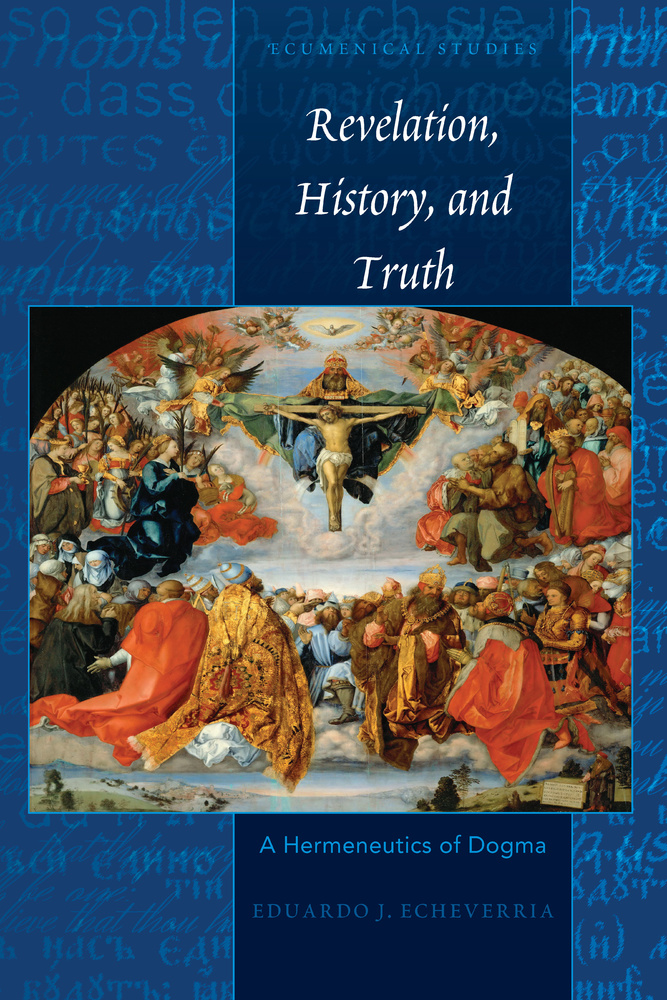
Eduardo Echeverria, Revelation, History, and Truth: A Hermeneutics of Dogma (Peter Lang Publishing, 2018)
As a Protestant theologian I have been surprised to see how, in the best modern accounts of the doctrine of revelation, all roads lead, if not to Rome, at least to Vatican II’s Dei Verbum. On display in that document are all the crucial issues relevant for a constructive Christian account of divine revelation. Echeverria’s book is an interpretation of Dei Verbum, but not the kind that remains satisfied with just parsing the text. He places the council’s Lérinian hermeneutics of retrieval in dialogue with historical consciousness, traces its connection to the nouvelle théologie, and draws the conclusions for an account of the development of doctrine. There is much here to inform and stimulate theologians of any confession. I especially appreciated how conversant Echeverria is with Protestant thinkers like Berkouwer and Vanhoozer; how nimbly he dismantles the false dichotomy between personal and propositional revelation; and how well he illuminates the distinction between the deposit of faith and the mode in which it is expressed.
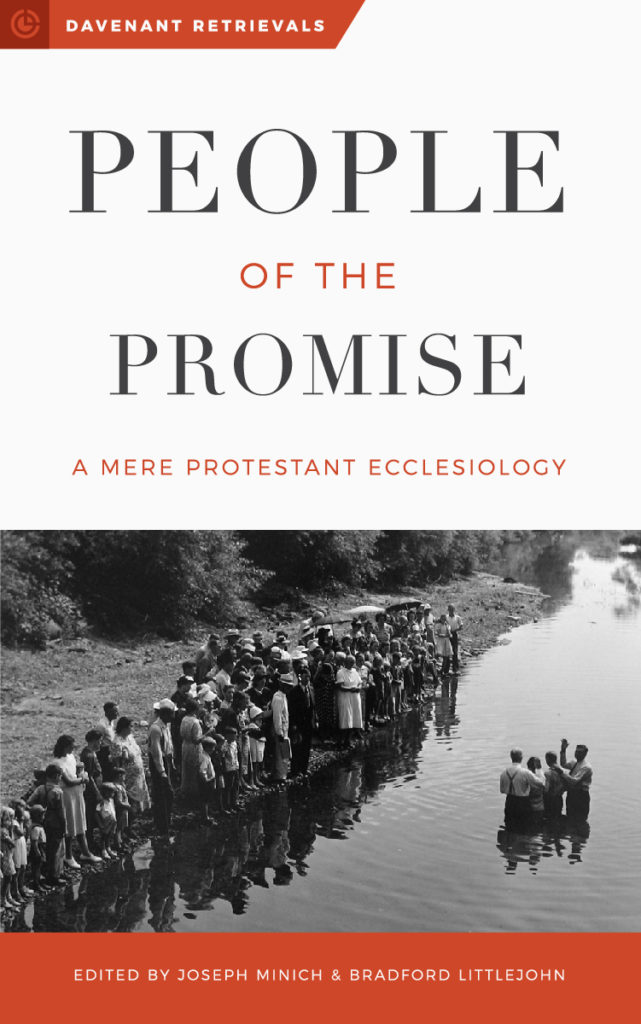
Joseph Minich and Bradford Littlejohn, editors, People of the Promise:A Mere Protestant Ecclesiology (Davenant Press, 2017)
Conventional wisdom holds that just as Protestantism supposedly fractured the church into churches, so it fractured ecclesiology into ecclesiologies. This spirited volume argues the opposite: that the magisterial reformers in fact advanced a single, powerful, coherent, and biblical account of the essence of the church, focused on the gospel. With remarkable restraint, the authors of People of the Promise decline to be distracted as they retrieve Protestantism’s core ecclesiology. Readers may experience the shock of recognition to find that not only have they seen this ecclesiology before, they are inhabiting it. This retrieval should strengthen us to inhabit it more amply.
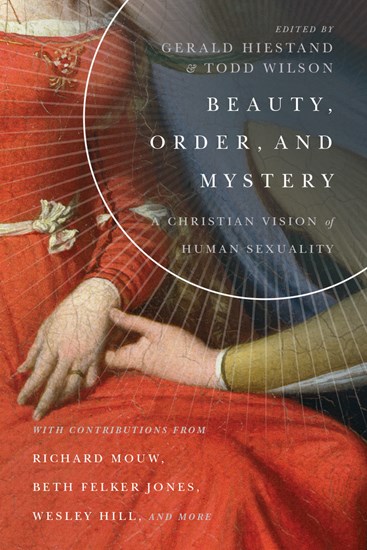
Gerald L. Hiestand and Todd Wilson, editors, Beauty, Order, and Mystery: A Christian Vision of Human Sexuality (IVP Academic, 2017)
There’s a public conversation about human sexuality happening nearly everywhere today, but this book helpfully locates it right at the intersection of the pastoral and the theological. Beauty, Order, and Mystery provides a remarkably easy introduction to a vexed set of issues because the chapters are approachable and accessible even as they display deep reflection and up-to-date learning. In this particular multitude of counselors there is much wisdom.
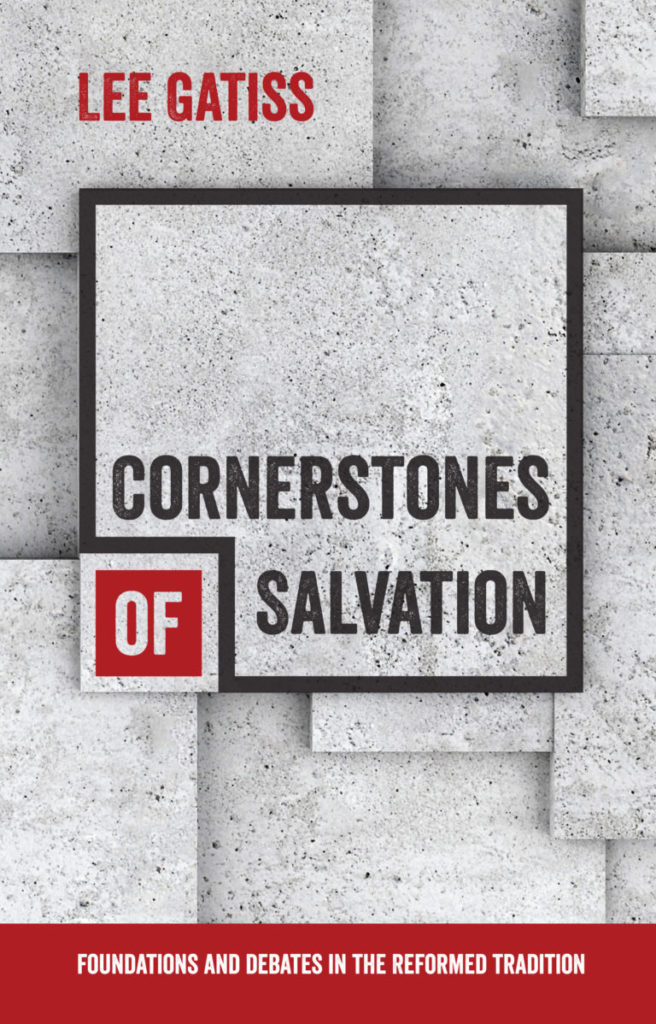
Lee Gatiss, Cornerstones of Salvation: Foundations and Debates in the Reformed Tradition (Evangelical Press, 2017)
Scripture commands us to contend for the faith and also to avoid foolish controversies: Lee Gatiss walks that fine line from which obedience in both directions remains possible, and shows us how often holy wisdom takes the form of a strategist choosing the right battles. In a collection that starts with Luther’s decision to pick a fight with Erasmus and ends with Wesley’s decision to pick a fight with Whitefield, Gatiss revisits some key contested places of Protestant history. Concise and crisply written, these are fine companion pieces to the history of soteriology in the Reformed tradition. Disagreeing heartily at several key points, I nonetheless recommend it highly as a lively, informative, and clarifying examination of things that matter.
Jordan Barrett on Divine Simplicity:
Barrett’s work is a helpful contribution to the ongoing task of the critical retrieval of the doctrine of divine simplicity, with a definite emphasis on “retrieval” over “critical.” In order to put this classical doctrine back to work in the Christian theological system, Barrett canvasses recent objections and then draws on trinitarian conceptual resources to solve some of simplicity’s alleged problems. Barrett’s diligent attention to Scripture’s direct witness for the elaboration of a doctrine of divine simplicity brings to bear considerable exegetical resources previously neglected.
April 2017, Michael Horton, Rediscovering the Holy Spirit
Here is a carefully-wrought work which re-organizes much of the material we expect to find in a doctrine of the Holy Spirit, connecting things too often bifurcated while distinguishing things too often conflated. This pneumatology pushes and pulls on some of our habitual categories because it attends so carefully to the Holy Spirit as the one who not only reconciles and perfects (the sections on the Spirit in creation and eschatology stand out), but also sanctifies and separates (the Spirit’s role in judgment and consecration is strikingly accented). It is wonderful that Horton says considerably more here about the Holy Spirit than we have heard from him in previous books, but it is equally wonderful that what he says is in keeping with the main lines of his theological project: Anchored in the Trinity, spanning redemptive history, and directly connected to the ordinary ministry of the church.
John Piper, Reading the Bible Supernaturally
If you disconnect the Bible from God’s glory, you lose your grip on both. What terrible things we hear people say about each of them, taken in isolation. John
Piper puts them together, and finds himself preaching an astonishingly high doctrine of Scripture, right alongside an intimately experiencable doctrine of God’s glory. Reading the Bible is not just one of the helpful activities that make up the Christian life. Kept in proper context, seen in full perspective, and received in wide-awake recognition of the living voice of the Triune God, reading the Bible is the central act of Christian existence. This book, a kind of extended Christian Hedonist gloss on Psalm 119, is an invitation to the miracle of Bible reading.
Dec 2016, Greg Koukl, Story of Reality
When I looked into Koukl’s Story of Reality, I thought, “This is not how I would say this.” I would have used more technical terms, added quite a bit of history, expanded it by a couple hundred pages, and put in about a thousand footnotes. So readers can rejoice that instead, Greg Koukl is the right man to tell the story in such a clear, concise, and conversational way. This book explains the central ideas of Christianity and answers questions people are really asking.
Aug 2016, Called by Triune Grace, Jonathan Hoglund
Here are the new ground rules for how to think well about God’s effectual call. The deep structure of conversion may remain a holy mystery, but this book rescues it from being a theological muddle or the source of needless conflict. Hoglund’s approach to the triune God’s rhetoric of salvation is exegetically clarifying, ecumenically helpful, and evangelistically useful. This is a deeply persuasive book about the deepest kind of persuasion.
Oliver Crisp, The Word Enfleshed: Exploring the Person and Work of Christ (Baker Academic)
Anybody who has been following Oliver Crisp’s essays over the last few years must have suspected that even as he plies analytical tools to work on particular, local puzzles in theology, he is taking his bearings from a fairly comprehensive account of Christian doctrine in the back of his mind. The Word Enfleshed confirms that suspicion. Each chapter of this book is focused on an issue sharply defined enough to be manageable, yet when assembled they amount to a well-connected doctrinal system, at least in outline. Crisp always seem to know where he is. He continues his defense of a Christology that has a traditional profile, meanwhile extending his argument into soteriology, anthropology, and pneumatology.
Mar 2016, Matt Emerson , btwn the cross and the throne
Emerson understands that Revelation is the conclusion of the Biblical story, so Between the Cross and the Throne accomplishes much more than just introducing one of the books of the Bible. It introduces the whole Bible by attending closely to the key terms, ideas, and movements of thought found in that final book.
Feb 2016, Horton, Core Christianity
I read straight through this solid book on the central truths of the Christian faith and was impressed. But when I searched the text for some of the standard technical terms of theology, I found that Horton had managed to deliver the whole message in simple, non-technical language. Then I was doubly impressed. This is a very useful little book.
Jan 2016, Pictures at a Theological Exhibition
Vanhoozer has a reputation for unveiling the big picture for us, but here he devotes his considerable critical powers to a series of small ones. For fans of his earlier work, there are characteristic delights and a few surprises –not least the interspersed sermons that answer the question, “yes, but will it preach?” Vanhoozer’s playfulness, recursions, puns, and layered allusions all pay off exceptionally well in these miniature studies. And readers who have heard that Vanhoozer’s theology deserves attention, but have wondered where to begin studying, are well advised to start with these rich and accessible essays.
Swain and Allen, Christian Dogmatics
Behaving for all the world as if we were living in some kind of golden age of vibrant Reformed orthodoxy, the editors have brought together a multi-author confessional theology, with significant contributions from a range of respected authors. This is a gift to the entire church: the solidity, maturity, resourcefulness, and sagacity of these chapters provide theologians from all confessions with a statement of Christian doctrine from an identifiably Protestant perspective. I would not have thought such a thing possible in our time, but here it is: further evidence of Reformed catholicity’s helpfulness.
Dec 2015 Yarnell God the Trinity
There is no task more important in contemporary trinitarian theology than that of clarifying its biblical character. Count Malcolm Yarnell among the theologians who have rightly identified this, and watch how he throws everything he’s got into the task. This book engages the Bible’s trinitarian idiom creatively, and summons evangelical theologians and Bible scholars to join in the joyful work of learning to discern just how deeply and directly God the Trinity has spoken in Scripture.
Sep 2015, Irons, Son of God
There are at least three ways to revere Jesus, and these three are definitely not one. This book is full of surprises, from the unexpected areas of agreement, to the way the Arian and Socinian views differ so starkly from each other in their fundamental principles, to the way the Trinitarian view leans now toward one interlocutor, now toward the other, and finally stands alone.
Uche Anizor and Hank Voss, Representing Christ
Having fallen precipitously from watchword to buzzword, “the priesthood of all believers” is in dire need of recovery today. Anizor and Voss rescue it from disuse, misuse, and abuse and restore it to its proper place: under the high priesthood of Christ, in relation to the Triune God, and in service to the world. This book guards a precious doctrine against hierarchical errors on one side and democratic errors on the other. Readers who have come to think of priesthood as a marginal topic or none of their business will find the theme expanding here to such vast and comprehensive proportions that it begins to seem like the main thing the Bible is about.
Oct 2015 piper peculiar glory
The classic doctrine of Scripture’s self-attestation suffers when it is used as a short-cut method of scoring evidential points or winning an argument without doing any work. But it unfolds its wings and soars to the heavens when it is given ample space, when it is handled by somebody who shows that when we read the Bible we are dealing with God himself in his own holy words. In this book, John Piper throws everything he’s got at the message of how God illuminates the mind and gives firm conviction to the heart through the Bible.
Ruth Sutcliffe, Trinity Hurdle
I learned a lot about Christadelphian doctrines and attitudes from reading Ruth Sutcliffe’s clear and helpful book, even though it was written to work the other way around: to help Christadelphians understand what Trinitarian Christians actually believe and teach. That the book can work in either direction is a testament to how well the author keeps to the main things, explaining basic theology and engaging widespread misunderstandings. I trust The Trinity Hurdle will find its audience(s).
Confessing the Impassible God, RBAP, Barcellos Renihan 5 editors named
A spirited reclaiming of the doctrine of divine impassibility, this coherent, well-edited, multi-author project is unique in several commendable aspects. It is decisively Baptist, but advances its argument in ways that recent generations have stopped expecting from Baptist theologians. These authors are committed to the final authority of Scripture in doctrinal matters, but mastery of their tradition’s confessional resources gives them uncommon access to depths of theological understanding. In particular, they have chased the doctrine that God is “without passions” all the way down metaphysically, relating it meaningfully to the theology of the divine being as pure act, and steadfastly refusing mere voluntarism, the persistent Scotist reductionist temptation to make everything depend on God’s will rather than his nature. Evangelical projects of retrieval are becoming more common as theologians appropriate patristic and medieval resources. No Wrinkle on the Brow of Eternity stands out for its commitment to a retrieval of the middle distance, the Baptist confessions of early modernity as the nearby trailhead to the great tradition of Christian theology. Good fences make good neighbors, and I think that, paradoxically, the decisively Baptist focus of this project is what will make it useful beyond its own Reformed Baptist confessional borders.
Ruiz-jones, from siesta to sabbath
Decades ago, Franz Bibfeldt pointed to the dogmatic importance of a sabbatique totale, but the response from the guild of professional theologians was muted at best: “We hear what you’re saying, but we just don’t care.” With the appearance of From Siesta to Sabbath the epoch of the hermeneutical snooze alarm has finally passed away, because this sprawling, ludic performance by Ruiz-Jones is as unignorable as it is unputdownable and eminently arguewithable. Here is a volume that is certain to fall like a lullaby on the playground of the theologians. It calls time out on any number of current academic projects, and in so doing, it fills a much-needed gap in modern theology. Lie down and read!
Twombly Perichoresis
For a long time now, the looser sort of constructive theology has been afflicted with a bad case of “galloping perichoresis,” and it has become trendy to say that just about anything mutually indwells just about anything else –perichoretically. This book recovers the witness of John of Damascus to help restore a great theological category to its proper place. Equal parts historical reconstruction and dogmatic clarification, Twombly’s book celebrates the vast systematic scope of perichoretic unity in the classic doctrinal tradition, simultaneously demonstrating that a concept with so much to offer for trinitarian and christological discourse will only be distorted if stretched beyond those topics.
Wesley Hill, Paul and the Trinity
This book is a breakthrough, because in it Wesley Hill notes and describes an element of Paul’s thought overlooked for too long. Paul speaks of God, Christ, and the Spirit as mutually involved and relationally linked in a personal reciprocity that conditions everything he says about each of them. Setting aside more recent habits of thought, Hill adopts a trinitarian grammar for rereading Paul. Exegetes who rightly fret over the danger of imposing a foreign and anachronistic conceptual grid on Paul’s texts are invited to take up and read: without flash or bombast, Hill nimbly models just how apt and illuminating the trinitarian matrix is for serious biblical studies.
Swain and Allen, Reformed Catholicity
To anybody familiar with recent initiatives in Protestant life and thought, it is no surprise that Allen and Swain would co-author such a stirring summons to embrace the fullness of historic Christian catholicity. What many will find surprising is that their “renewal through retrieval” manifesto takes the form of rehabilitating the much-abused doctrine of sola scriptura, by turns defending it from some detractors and rescuing it from some misguided champions. In their hands, this venerable doctrine resumes it function as a guide for engaging the riches of the church’s historic confession, not an excuse for ignoring pre-Reformation exegesis. Here is Protestant theology that understands itself, its source, and its context with refreshing clarity.
March 2014 Brian Brock open to the world captive to Christ
These interviews give us a chance to listen in as an erudite and nimble-minded theological ethicist responds to the gamut of issues in our world. Brock advocates an open and unguarded type of Christian engagement in culture, and in this little book the medium fits the message. We can’t ask Augustine, Luther, and Bonhoeffer how they would respond to the cultural, ecological, and technological issues of our time, but we can listen to Brian Brock think on his feet about what is to be learned from them and from Scripture.
June 2013, Morgan and Peterson on Sin
Sin is the inconvenient truth, the bad news that we are tempted to hurry past in our rush to get to the good news of the gospel. The authors of Fallen do not rush past this hard subject; they examine it carefully, patiently, and thoroughly, in all its biblical, historical, systematic, and practical implications. Exceptionally well unified for a multi-author work, Fallen may be the most complete resource on the doctrine of sin in this generation, and will certainly serve well as a comprehensive introduction to this neglected topic.
2012, Michael Reeves, Delighting in the Trinity
If you have ever felt that the doctrine of the Trinity was a liability, a burden to be borne patiently, this is the book that will change your perspective. Michael Reeves’s Delighting in the Trinity presents the triune God as the best thing about the Christian faith. Convinced that ‘the triunity of God is the secret of his beauty,’ Reeves writes from a full heart, with contagious enthusiasm for the Trinity. Delighting in the Trinity is more stimulating, quotable and engaging than we usually expect a theology book to be. Page after page, Reeves finds new ways of talking, draws surprising connections and reminds us that the God of the gospel is good news in three persons.
July 2012, Augustine’s Confessions
https://blogs.thegospelcoalition.org/justintaylor/2012/07/06/blurbing-the-classics-on-augustines-confessions/
If you took a list of the greatest books of western civilization and whittled it down to the top five, Augustine’s Confessions would still have a secure spot on that list. It might even make the cut and stay on the top three list; it’s that much of a classic. In this carefully-crafted book, Augustine does theology by listening to his life, and then listening even more carefully and passionately to the words of God. We hear him ask all the right questions and most of the wrong ones. We hear him finding the truth and saying it in his own words. Or rather, we overhear him, because from beginning to end the Confessions is one sustained prayer to the God who alone can give the soul what it needs.
Boyer and Hall, Mystery of God
Here at last is a clear, precise, and careful treatment of mystery as a factor in Christian life and theology. Boyer and Hall chart a middle course between the cliffs of rationalism and the whirlpool of irrationalism, bringing readers safely through to the spiritual homeland, to lives hidden with Christ in God. There is no mystery mongering here. When Boyer and Hall appeal to mystery, they are not obfuscating, but opening up and clarifying vast ranges of theology and spirituality for edifying exploration.
Matthew Lee Anderson, Earthen Vessels
Earthen Vessels is a turning point in the evangelical conversation about the meaning of bodies. If you didn’t even know such a conversation was going on, you are lucky to have Matthew Anderson introducing you to it. If you’ve already been listening in and are as confused as the rest of us, you’ll appreciate the way this book sorts things out, settles accounts, debunks myths, digs for sources, raises neglected issues, and points out the way forward. On nearly every page you can find two virtues rarely combined: surprising new insights and good old common sense. Here is good counsel (solid, soulful, scriptural) about how to be humans, in bodies, under the gospel.
How to Pray & How to Study the Bible by R. A. Torrey , Hendrickson Christian Classics, 2004
“R. A. Torrey’s passion for making Christian theology a matter of daily life shows up in the host of “how to” books that he wrote. This volume brings together in one place the two most influential of Torrey’s practical guides. How to Pray sparked numerous revivals in the first decade of the twentieth century, and How to Study the Bible was a key text in spreading inductive Bible study techniques and opening up the riches of Scripture for ordinary Christians. What Torrey valued most was making the truth accessible and practical, enabling every Christian to know God personally and to take definite action in the service of Christ.”
 Fred Sanders
Fred Sanders

